COVID-19 is a contagious disease caused by a coronavirus. People infected with the COVID-19 experience mild to moderate respiratory illness and usually recover without requiring special treatment.
People with underlying conditions like cardiovascular disease, diabetes, chronic respiratory disease and cancer are more likely to develop serious illness.
The best way to protect yourself and to slow down the transmission of COVID-19 is to be well-informed about the virus and how it spreads. The COVID-19 virus spreads through droplets of discharge from the nose when an infected person coughs or sneezes.
Till now there are no specific vaccine or curative treatment options for COVID-19. However, there are many trials going on evaluating potential treatments
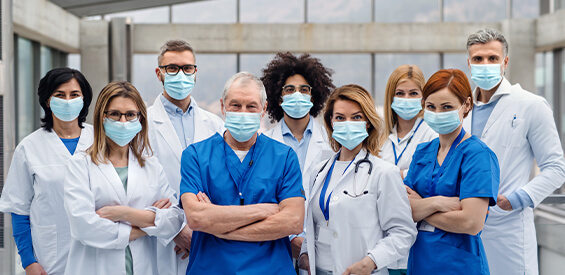
We are currently facing a pandemic situation which has devastated everyone around the world. It is time to stand united and fight against COVID-19. For the sake of lives lost, for all the health care workers on the front line working day and night to save us, let us all pledge to fight Corona.
The COVID-19 virus affects people in different ways. People over 65 years old and those who have underlying conditions are at higher risk of developing severe disease.
Common symptoms include:
Other symptoms include:
To prevent COVID-19 infection and to slow down the transmission, do the following:
1. What is a coronavirus?
Coronaviruses are a group of viruses that cause respiratory infections ranging from cold to severe illness such as Severe Acute Respiratory Syndrome (SARS). The most recently discovered coronavirus is called COVID-19.
2. What is COVID-19?
COVID-19 is the contagious disease caused by the most recently discovered coronavirus, originated from Wuhan, China, in December 2019.
3. What are the symptoms of COVID-19?
The most common symptoms of recent coronavirus are fever, breathlessness, and dry cough. Other symptoms include nasal congestion, runny nose, sore throat, diarrhea. People with age above 65, asthma, obesity, chronic kidney or liver diseases, heart problems and diabetes are at a greater risk of getting severe infection.
4. How does coronavirus spread?
COVID-19 is highly contagious and can spread from others through small droplets from the nose or mouth which are spread when an infected person coughs or exhales. People can catch COVID-19 by touching surfaces that are contaminated by infected droplets. These include doorknobs, lift buttons, mobile phones, shared towel etc.
It is important to stay 1 meter away from a COVID-19 infected person.
5. Is there any drug vaccine or treatment for COVID-19?
No, till now there is no vaccine, drug or medicine known to prevent or treat COVID-19, but there are treatment methods to relieve symptoms.
6. What precautions should I take to avoid COVID-19?
Take these precautions to protect yourself and others from COVID-19:
Pre Registration
Due to the surge of COVID patients at the hospital and a longer waiting time, Sakra World Hospital has enabled a pre-registration facility on our website. With the aim to help the patients to register online before their visit to the Sakra Fever clinic which will allow them to spend less time in our facility and immediately move into the sample collection activity hence spending less time in the COVID testing zone.
How to self-register for the COVID-19 sample collection procedure:
Click on the link to register: https://reg.sakraworldhospital.com/
*For registration basic details of the patient like name, date of birth, email ID, mobile number are required.
Steps to be followed for COVID-19 Testing Process in Sakra Fever Clinic
Visitors visiting Sakra Fever Clinic will have to take a note of the below step for a smooth and hassle-free COVID-19 testing experience:
STEP 1: Collect your Billing token from the Token vending machine.
STEP 2: For self-registration scanthe QR code or go to this URL: https://reg.sakraworldhospital.com to complete your registration for the COVID test. (Applicable to first-time visitors to Sakra World Hospital). After completion of registration, you will receive a confirmation message with having pre-registration number on your registered phone number.
STEP 3: Proceed to the respective billing counter once your token number is announced & displayed.
STEP 4: Upon completion of the billing procedure, tender a new token for a sample collection from the Token vending machine and proceed toward the sample collection bay.
STEP 5: Collect the COVID Testing Sample Kit from the Kit distributor representative next to the sample collection cabin and wait for your turn to give the Covid test samples.
STEP 6: After giving the COVID test samples you may return to your residence and isolate yourself until you receive negative results. Do not have contact with others until you have your test results. We will send your COVID test reports on your registered email Id in 24 to 48hrs.
Note:
COVID-19 vaccines are safe and effective. Everyone 18 years of age and older are now eligible to get a COVID-19 vaccination.
We at Sakra, are committed to caring for you and offering you the chance to get the COVID Vaccination in Bangalore as quickly and safely as possible.
Preparing for COVID-19 Vaccination
COVID-19 vaccines are safe and effective at protecting you from getting infected from coronavirus. There are two different types of vaccine available at the covid vaccination centre in Bangalore:
COVAXIN: It is an inactivated vaccine that has developed with Whole-Virion Inactivated Vero Cell-derived technology. The vaccine contains inactivated viruses which can not infect a person but still can instruct the immune system to prepare a defence mechanism against the active virus.
COVISHIELD: It is made from a weakened version of adenovirus from chimpanzees. The virus is modified to enable it to carry the COVID-19 spike protein into the cells of humans. Sakra World Hospitals is providing a Covishield vaccine in Bangalore to help prevent you from getting or spreading the infection.
Getting COVID-19 Vaccination
What to Expect after Getting a COVID-19 Vaccine
You may experience usual side effects after getting a COVID-19 vaccine. The common side effects include:
Before you schedule your vaccination appointment, please first consider:
FAQs
Can a person get vaccinated without registration?
Registration is necessary, only after the registration information about the time and vaccination date will be shared.
Is it compulsory for all to take the vaccine?
It is advisable to get vaccinated to limit the spread of the coronavirus.
Can I get vaccinated without a photo ID?
Photo Id is must for registration and verification at the government or private hospitals in Bangalore for COVID vaccine to ensure that the intended person is vaccinated.
Which vaccine is better between Covisheild and Covaxin?
Both the vaccines work fine in preventing the infection as well as prevent a person from going into a severe state of the disease.
Should women delay conception after getting the COVID-19 vaccine?
Women who are trying to conceive should get their vaccine as soon as possible after consulting with their gynecologists.
1) What happens if a person becomes Covid-positive between two vaccine doses?
If you get COVID-19 after taking one dose of Covid vaccine then that doesn’t mean you can't get a second dose. Covaxin second dose is given after four weeks of the first dose and Covishield second dose is given after 6 - 8 weeks of the first dose. Consult with the doctor on when to take the second dose and do as the doctor says. Two doses are necessary to build immunity against COVID-19. You can go to any Covaxin vaccination centres in Bangalore and get vaccinated if you have registered online.
2) What are the Side Effects of a COVID-19 Vaccine?
Common side effects of COVID-19 vaccine are:
On the arm where you get the Covid-19 shot:
In the rest of the body:
3) Can I get a COVID-19 from the vaccine?
No, you cannot get a COVID infection from the vaccine because it doesn’t contain the live virus.
4) Are Covaxine and Covishield effective against all mutations found till now?
According to the doctors, vaccines are effective against all strains except a few. One of them is the South African variant, it is very difficult to fight this strain with the present vaccine.
5) How many variants of COVID-19 are there now?
There are multiple variants of the virus circulating globally that causes COVID-19. CDC has established three classifications for the SARS-CoV-2 variants being monitored: Variant of Interest (VOI), Variant of Concern (VOC), and Variant of High Consequence (VOHC).
There are currently five VOCs:
Covid-19 Vaccine Myths:
1. Myth: Patients with blood pressure issues, diabetes, HIV, kidney problems, or cancer survivors should not take Covid-19 vaccine?
Fact: This is absolutely false. People with blood pressure, diabetes, HIV, kidney problems or cancer should be the first ones to be vaccinated on priority due to their health conditions.
2. Myth: Don’t get vaccinated during your periods because your immunity is low.
Fact: Mensuration is a normal process through which women’s bodies go every month, it doesn’t affect the immunity of the women. Mensuration has no effect on the safety and efficacy of the COVID-19 vaccine. Therefore, it is absolutely safe to get vaccinated during your periods.
3. Myth: If you have had COVID-19 once then you don’t need vaccination or masks.
Fact: COVID-19 reinfection is very much possible even if you had the covid infection before. Wearing a mask all the time is very much important and taking a vaccine after you come negative is necessary to reduce the chances of reinfection.
4. Myth: COVID-19 Vaccines can make you infertile.
Fact: There is no scientific evidence that proves or even suggests that COVID vaccines affect fertility at all.
5. Myth: Pregnant or breastfeeding should avoid taking COVID-19 vaccine.
Fact: Pregnant and breastfeeding women should consult with the doctors and discuss in detail about the vaccine.
Sakra World Hospital is pleased to provide the public with information on health, wellness, guidelines and latest updates related to COVID-19. If you have symptoms, call the primary care provider. Please do not come to the hospital or emergency care clinic unless instructed.
We have taken advanced steps in response to the ongoing Coronavirus (COVID-19) pandemic. Please find the latest news and information here.
Patient-Visitor Guidelines
All patients and visitors are requested to wear a face covering mask to slow the spread of COVID-19. Please bring your own face mask to wear while at our facilities to protect our health care workers, yourselves and to combat any additional community spread.....
Following measures are being taken to prevent the community spread:
Screening
Secure Patient and Caregiver Environment
Sanitizer hand-rubs and masks are available at all entry points and reception desks for use of patients, visitors and staff.
Frequently touched surfaces are cleaned daily with disinfectant within every three hours.
Patient Care
Limited Services to avoid Crowd
Gearing Up
The entire Emergency Room area has been redrawn in readiness for the anticipated flow of patients with possible Covid-19. This includes provision for an isolation area and some numbers of critical care as well as HDU beds. These are hermetically (AC) separated out from all other areas of the hospital minimizing risk of spread.
Contingency plans are being implemented to provide for increased influx should the situation so demand. This includes modification of existing patient care areas to provide for well ventilated isolation and care facilities. Also the entire gamut of activities from re-drawn staffing rosters, stocks of medications, supplies of PPE and consumables, training and protocols for patient care, shifting, food handling, cleaning and waste management etc.
RT-PCR testing facility has been installed in our lab and ICMR has accorded approval. Testing is expected to commence shortly after due validation. This would greatly enhance capability for quick clinical decision making.
Sakra World Hospitals has 300 beds and all are approved for COVID-19 testing. We have also created an isolated area at our emergency room which is converted into a respiratory room.
Our 50% beds are clinical-care ready beds and other 50% are high dependency unit beds. ICMR has approved all facilities for COVID-19 testing.
Education
Extensive campaigns internally have reinforced the appropriate use of personal protective equipment (PPE) and use of masks and hand hygiene.
A number of signboards are put up educating patients on the nature of disease, its spread and practical steps that can be followed.
Start with an online consultation with a doctor. The doctor will advise what to do next.
Call ahead before going in person to Sakra World Hospital.
Don’t go to the emergency room for COVID-19 testing. The emergency department is only for those who need immediate treatment and care.
Fever
Dry cough
Headache
Breathlessness
Bodyache & tiredness
Sore throat
Diarrhea, nausea / runny nose
Shortness of breath
Wash your hands regularly
Maintain Social Distancing
Avoid touching your face
Stay home if you feel unwell
Avoid smoking / other activities that weaken the lungs
While coughing sneezing, cover your mouth
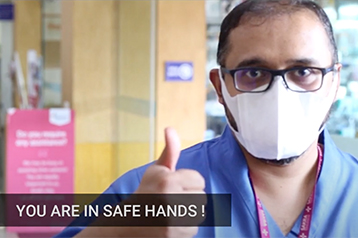
The venture is driven by world-renowned Japanese giants - Secom & Toyota tsusho with the best in place Indian clinicians makes Sakra World Hospital truly a World Class Read more…
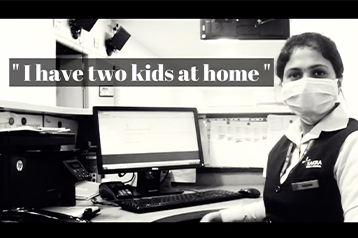
All the courageous doctors, nurses, first responders, medical staff and so many others who find themselves on the frontlines of this public health, we all are working together Read more…
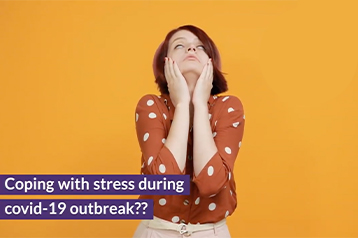
In the context of the Covid_19 pandemic, we see there is a substantial increase in stress with many of us.Its really essential to keep our mental health in check. Here are the Read more…
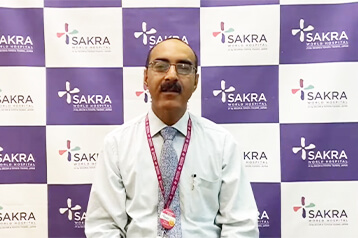
Safety and Hygiene is a way of life here at Sakra. Screening of each and every visitor, patient, doctor or healthcare giver is carried out in a separate area designated as the Read more…
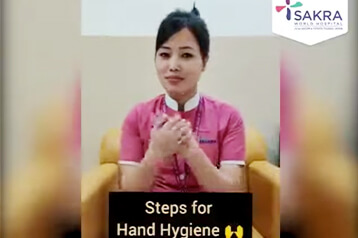
Health and hygiene are wealth and fitness.Wash your hands and fingers for any germs that lingers.Washing hands prevents disease and puts everyone else at ease.Clean hands are Read more…
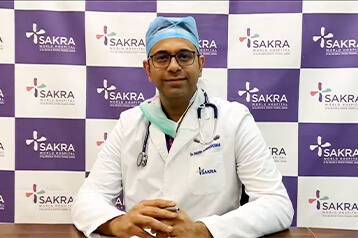
We urge you to follow the advice of government and professionals and maintain social distancing and act as responsible citizens of the country. In this covid-19 outbreak, it Read more…

Health care at your Fingertips.Why wait? Try out our Video Consultation. Providing reliable professional advice and diagnosis. Serving all people through exemplary health Read more…
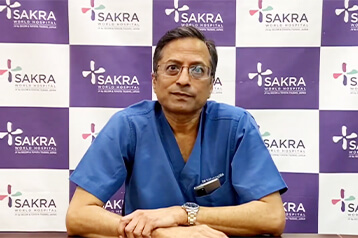
Reassuring all of you, that we the Doctors and Medical staff at Sakra World Hospital are committed to stand by You and support Read more…
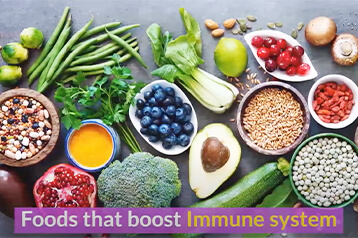
Whenever the immune system deals successfully with an infection, it emerges from the experience stronger and better able to confront similar threats in the future. Our Read more…
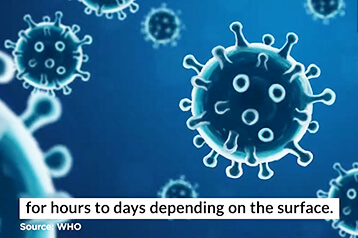
Coronavirus can remain on surfaces made from a variety of materials for hours to days, depending on the surface. Disinfecting refers to using chemicals to kill germs on Read more…
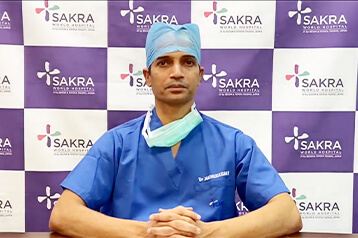
Initial Reports suggests only 5% of Patients affected by COVID - 19 needs Intensive care, those being the diabetic patients or with cardiac issues. Management of COVID 19 with Read more…
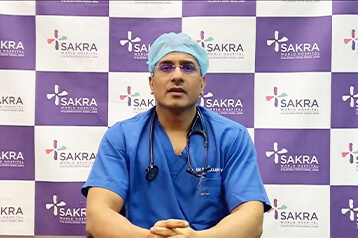
From the experience known to us from other countries, After the first few weeks the infection explodes. All of us have to be prepared for this situation and be responsible Read more…
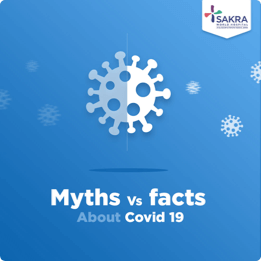
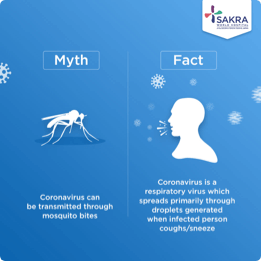
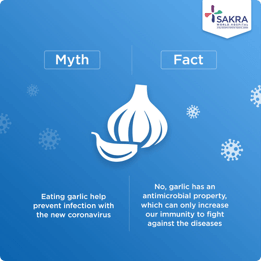
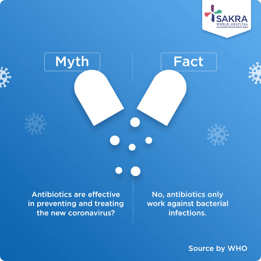
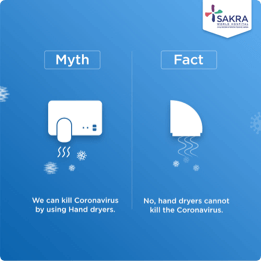
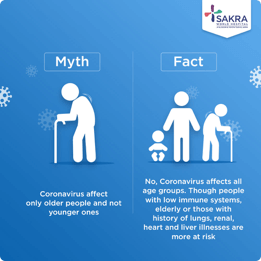
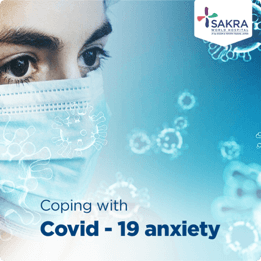
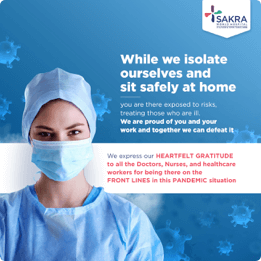
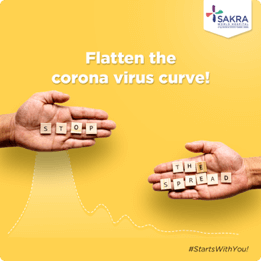
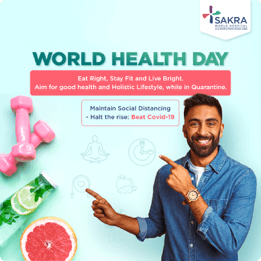
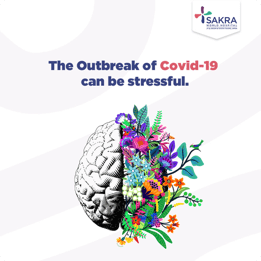
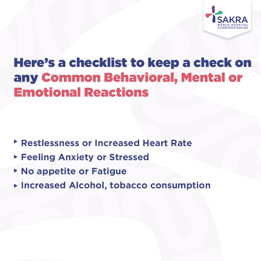
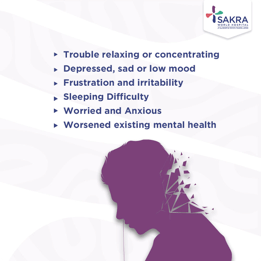
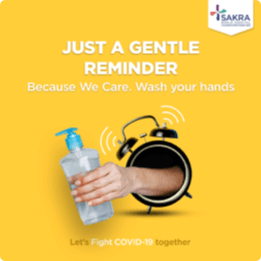

Social distancing is the most important way to stop the virus from spreading. Self-isolation is very important to fight against COVID-19. Keep a distance of at least 1 metre from others while going out to break the chain of spreading the coronavirus. Do not leave your home unless an emergency. Stay home with your family, keep your children inside and play with them. Spend time with your family as much as you can.
You will not catch COVID-19 in hot weather.
Holding a breath for 10 seconds or more confirms that you are free from coronavirus (COVID-19)
Drinking alcohol protects against COVID-19.
COVID-19 can only be transmitted in hot and humid climates.
Taking a hot bath prevents coronavirus disease.
Spraying alcohol or chlorine all over the body kills the new coronavirus.
Exposing yourself to the sun doesn’t prevent the coronavirus disease (COVID-19)
Being able to hold your breath for 10 seconds or more doesn’t mean that you are free from coronavirus disease (COVID-19).
Frequent consumption of alcohol only increases the risk of health problems. It does not protect you from COVID-19.
Coronavirus (COVID-19) can be transmitted in all areas, including areas with hot and humid weather. The best way to protect yourself is to self isolate and wash your hands frequently.
Taking a hot bath doesn’t prevent coronavirus disease. Your body temperature remains around 36.5 degree Celsius to 37 degree Celsius, regardless of the temperature of the bath.
Spraying alcohol or chlorine all over the body doesn’t kill the coronavirus which has already entered your body
The COVID-19 outbreak has forced all to work from home to reduce the spread of coronavirus. While some may be used to this, others may feel lost the whole day. Here are some important tips to make the most of your work from home.
Create a temporary work space in your home and make sure you choose right furniture as backaches are very common during work from home.
Be organised, keep everything ready like laptop, diary, pen, cell phone and charger.
Plan your day ahead. Have a task list with you and prioritize your projects accordingly.
Communication is a must during WFH, call your colleagues for any routine queries.
Block any distractions from your home during the work hours otherwise you will lose your productivity.
Take regular breaks for meals, coffee or simply get up from your seat and stand for some time.


Help everyone during this crisis, we are One, we are United.

Help those in need like the elderly and poor.

Don’t panic.

There is no evidence that hot weather will kill the virus. Stay Home, Stay Safe.

LOCKDOWN means LOCKDOWN, avoid going out until necessary.

Maintain social distancing, help in breaking the chain of spreading the virus.

Follow all instructions issued by the govt. authorities.
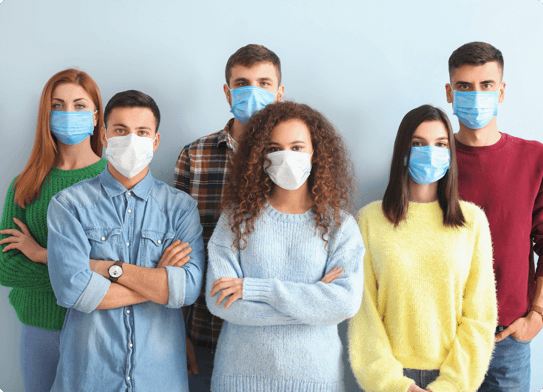
Coronaviruses are a group of viruses that cause respiratory infections ranging from cold to severe illness such as Severe Acute Respiratory Syndrome (SARS). The most recently discovered coronavirus is called COVID-19.
COVID-19 is the contagious disease caused by the most recently discovered coronavirus, originated from Wuhan, China, in December 2019.
The most common symptoms of recent coronavirus are fever, breathlessness, and dry cough. Other symptoms include nasal congestion, runny nose, sore throat, diarrhea. People with age above 65, asthma, obesity, chronic kidney or liver diseases, heart problems and diabetes are at a greater risk of getting severe infection.
COVID-19 is highly contagious and can spread from others through small droplets from the nose or mouth which are spread when an infected person coughs or exhales. People can catch COVID-19 by touching surfaces that are contaminated by infected droplets. These include doorknobs, lift buttons, mobile phones, shared towel etc.
It is important to stay 1 meter away from a COVID-19 infected person.
No, till now there is no vaccine, drug or medicine known to prevent or treat COVID-19, but there are treatment methods to relieve symptoms.
Take these precautions to protect yourself and others from COVID-19: